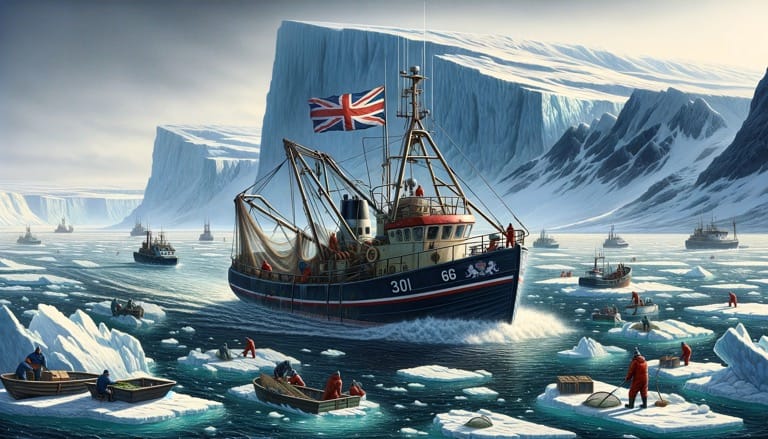Navigating Turbulent Waters: The Escalating Fishing Dispute Between Russia and the UK
In the wake of escalating tensions between Russia and the United Kingdom, a longstanding agreement crucial to the British fishing industry faces potential termination. This development emerges amidst the ongoing geopolitical strife resulting from Russia's military operations in Ukraine, and it specifically targets a key source of the

In the wake of escalating tensions between Russia and the United Kingdom, a longstanding agreement crucial to the British fishing industry faces potential termination. This development emerges amidst the ongoing geopolitical strife resulting from Russia's military operations in Ukraine, and it specifically targets a key source of the UK's beloved culinary staple: fish and chips.
Historical Context and Agreement Overview
Since 1956, under a bilateral agreement, British fishing vessels have had access to lucrative cod and haddock stocks in the Barents Sea, an area rich in marine resources located off the coast of the Russian Kola Peninsula and east of Cape Kanin Nos. Signed in Moscow by Soviet Deputy Foreign Minister Vasily Kuznetsov and UK Ambassador to the USSR, William Hayter, this agreement has been a cornerstone of the UK's fishing industry for over six decades.
Current Developments and Russian Stance
Recent reports indicate that the Russian government, led by President Vladimir Putin, is actively pursuing the revocation of this historic fishing agreement. The proposed termination, reported by Russian newspaper Izvestiya and confirmed by a government spokesperson, is in response to the UK's sanctions against Russia amid the ongoing conflict in Ukraine. The draft legislation, which requires approval from the Russian parliament and President Putin, is seen as a retaliatory measure against the UK's economic and political actions.
Impact on the UK Fishing Industry and Beyond
The potential ban on British trawlers in the Barents Sea poses a significant threat to the UK's fish and chips industry, a cultural and culinary icon. The Barents Sea has been a primary source of cod and haddock for the UK, with recent data suggesting that up to 40% of these fish consumed in the UK come from this region. The revocation of the agreement could lead to a substantial reduction in supply and potentially higher prices for consumers.
Wider Implications and the "Weaponization of Food"
This move by Russia is viewed by some as an act of "weaponizing food," leveraging natural resources as a tool in geopolitical conflicts. It underscores the broader challenges of international resource management and trade relations in an era marked by complex geopolitical tensions. The situation also highlights the vulnerability of global food supply chains to political disputes and the need for diversification of sources to ensure food security.
Conclusion
As the situation unfolds, the implications of this potential fishing ban extend beyond the immediate concerns of the fishing industry. It serves as a reminder of the intricate interplay between natural resources, international agreements, and global geopolitics. The outcome of this dispute will not only affect the fish and chips shops across the UK but also set a precedent for future international resource-based conflicts.




